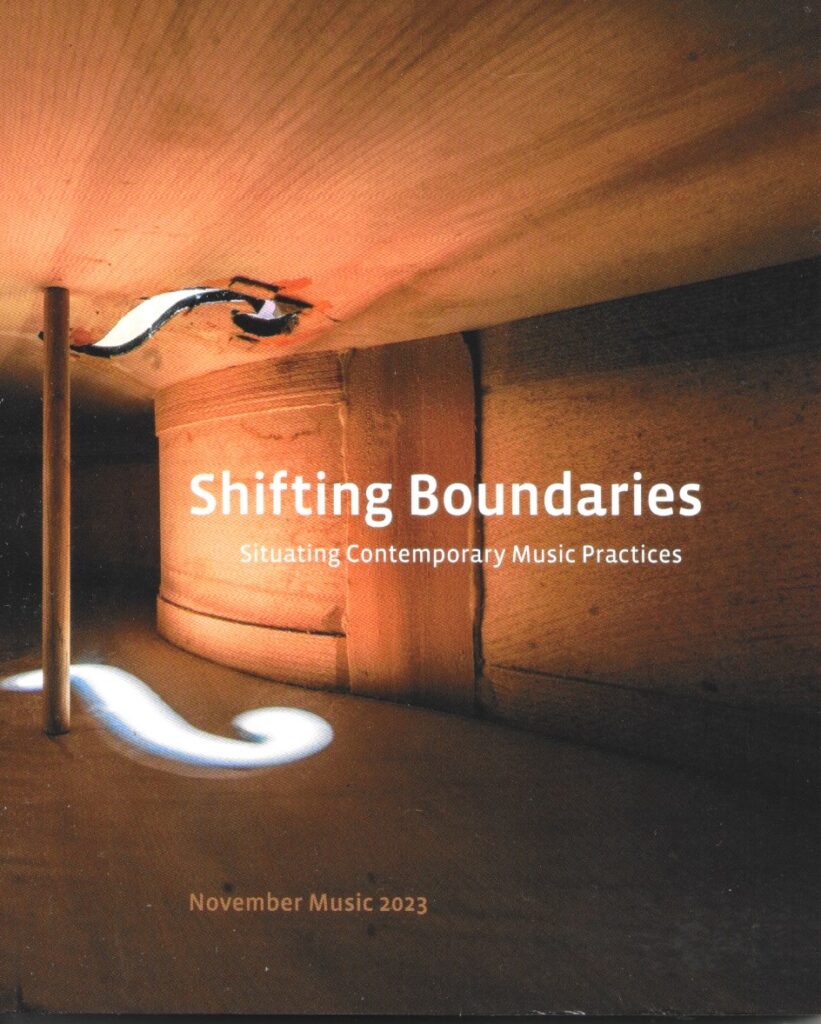SHIFTING BOUNDARIES
Disembordering the Musical Field

This text is a synthesis and further elaboration on the panel discussion
‘Disembordering the Musical Field’, with Aart Strootman, Maya Verlaak,
Heloisa Amaral and Thanasis Deligiannis. Moderated by the authors on
11 November 2022
[…]
The relevance of such a collaborative view on creation was recognised by composer Maya Verlaak, who argued that it is precisely in the co-creative character of her work that ensembles find an interest to engage in sustained collaboration. Also, in her work, experimentation with the tools and codes of classical music production plays an important role; it fosters new interaction and collaboration with performers and audience. For Verlaak, every new composition is an opportunity to invent new methods, question the role of instruments, scores and music notation, and challenge expectations in the standardised concert hall format. Using interactive technologies and game-like strategies, she prompts performers to respond to live-generated scores or to mind-read each other’s musical intentions, or she invites the audience to shout or clap to trigger sounds (via sensors and electronics), making them co-creative actors in the sound production. Conceptuality, curiosity, and critique play an essential role in her approach, leading to musical works that could be viewed as ‘music about music’ – not so much by a hermetic, inward-looking musical language, but by their playful and creative interaction with musical customs, contexts and heritage.
The video presentation of Verlaak’s work demonstrated how the practice of many contemporary music performers and composers has become highly multimedia, with much more than just sounding dimensions, but also visual, textual and theatrical elements inviting musical interaction. The idiosyncratic and experimental nature of this interaction possibly explains why composers such as Verlaak often actively participate as performers in their creations, also for practical reasons. […]
Full article available here
Publication available here